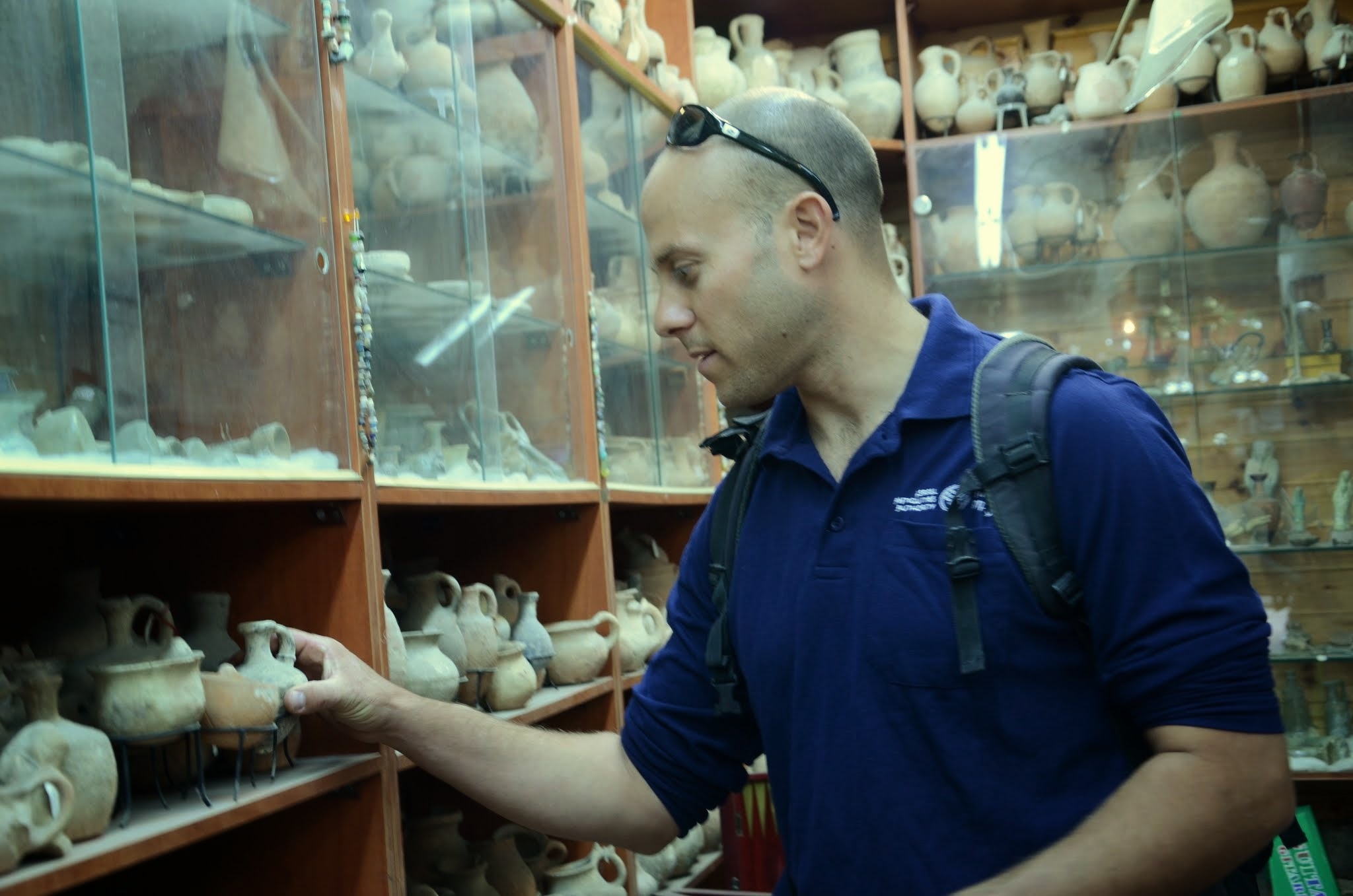Supreme Court Justices Yesterday Rejected a Petition by Antiquities Dealers Seeking to Rescind the Rules Regulating the
Management of Antiquities Inventories
According to Amir Ganor, head of the Unit for the Prevention of Antiquities Robbery at the Israel Antiquities Authority, “This ruling will allow better protection of Israel’s cultural treasures in the face of plundering and illicit trafficking"
Yesterday (Monday) a long-drawn-out process of changing regulations that began in the Israel Antiquities Authority in 2012 finally came to an end. The Israel Supreme Court, sitting as a High Court of Justice, rejected a petition by fifteen licensed antiquities dealers challenging the State of Israel and the Antiquities Authority by seeking a request to rescind the regulations for the management of inventories that took effect this year. This, after a lengthy process of revising regulations that was begun at the initiative of the Israel Antiquities Authority, the Minister of Culture and Sports, the Ministry of Justice and the Knesset Education Committee.
Supreme Court justices, headed by Chief Justice Miriam Naor, Justice Anat Baron and Deputy Chief Justice Elyakim Rubinstein, did not see fit to intervene in the regulations enacted by the legislature, because in their words, the process by which the regulations were adopted was not flawed.
Advocate Radwan Badihi, legal adviser for the Israel Antiquities Authority, expressed his satisfaction with the court’s judgment. "The phenomenon of antiquities robbery is a national catastrophe. The court’s ruling has put an end to years of ongoing damage to cultural assets and will place Israel in line with the civilized countries of the world in protecting the nation’s cultural heritage and antiquities. The court issued the Antiquities Authority effective tools for the enforcement and protection of antiquities”.
At the crux of the regulations is the Antiquities Authority’s directive requiring antiquities dealers operating in Israel to report the commercial inventory in their possession through an online inventory management program. Every ancient artifact will receive an individual identification number and will be identified in an unequivocal manner by means of an attached picture.
The computer program will allow supervision of the commercial antiquities inventory in Israel, and will automatically execute inventory transfers between dealers. It will remove from the inventory lists items that will be sold to the public or granted an export license, and every antiquity and object will be issued a commercial identity number. These regulations are intended to replace previous regulations from 1983, by which reporting was done manually and is no longer suitable for the current state of affairs in the antiquities market.
According to Amir Ganor, head of the Unit for the Prevention of Antiquities Robbery at the Israel Antiquities Authority, “The antiquities dealers in Israel, numbering less than seventy licensed merchants, have for many years possessed commercial antiquities inventory which according to their declarations they supposedly acquired prior to 1978. But lo and behold, according to the old records the commercial inventory currently retained by the traders has hardly changed between 1978 and today, thirty-seven years later. This has occurred despite the fact that every year those very same merchants sell at least c. 45,000 ancient items in Israel which they send abroad with an export license”.
Moreover, in the ensuing years since 1978, hundreds of antiquities sites in Israel have been damaged as a result of antiquities robbers searching for ancient artifacts which they intend to sell and profit from.
Ganor states that the previous method of recording was conducted manually thereby allowing countless manipulations in the registration – switching between items that were listed in the commercial inventory that originated prior to 1978 with items that were plundered in recent years from antiquities sites, which by law are the property of the state. This has taken place in the absence of any picture or drawing of each and every item whose identity marks are unique only to it.
According to estimates by Antiquities Authority experts, every year thousands of ancient objects robbed and looted from antiquities sites throughout the country find their way to the commercial antiquities markets in Israel and abroad. The Antiquities Authority is hoping that the new inventory management regulations will help to reduce the phenomenon of plundering antiquities at the country’s ancient sites because the regulations, along with increased enforcement, will make it difficult for antiquities dealers to add items that did not originally have legal provenance to their commercial inventory.
According to Ganor, "Israel is among the few “provenance” countries in the world that is rich in archaeological artifacts and that legally allows the trade in antiquities. Antiquities are the historical and cultural property of the people and the country, and belong to the nation and the public. The value of the objects lies in the message they bring from the past and their great importance to the historical and cultural research of all mankind, rather than as vehicle for making money and personal gain by a handful of interested antique dealers. On the one hand the regulations will allow law abiding antiquities dealers to continue normal trading in accordance with the regulations, while on the other it will greatly help in combating the illegal trafficking in antiquities. Antiquities robbers and the unlicensed antiquities dealers who are their go-betweens will very quickly come to understand that they have no one to sell the stolen antiquities to, and in the absence of demand the plundering of antiquities in Israel will be greatly reduced”.
picture:

An inspector of the IAA Unit for the Prevention of Antiquities Robbery during a visit to a dealer’s shop in the Old City of Jerusalem
Additional Articles ...